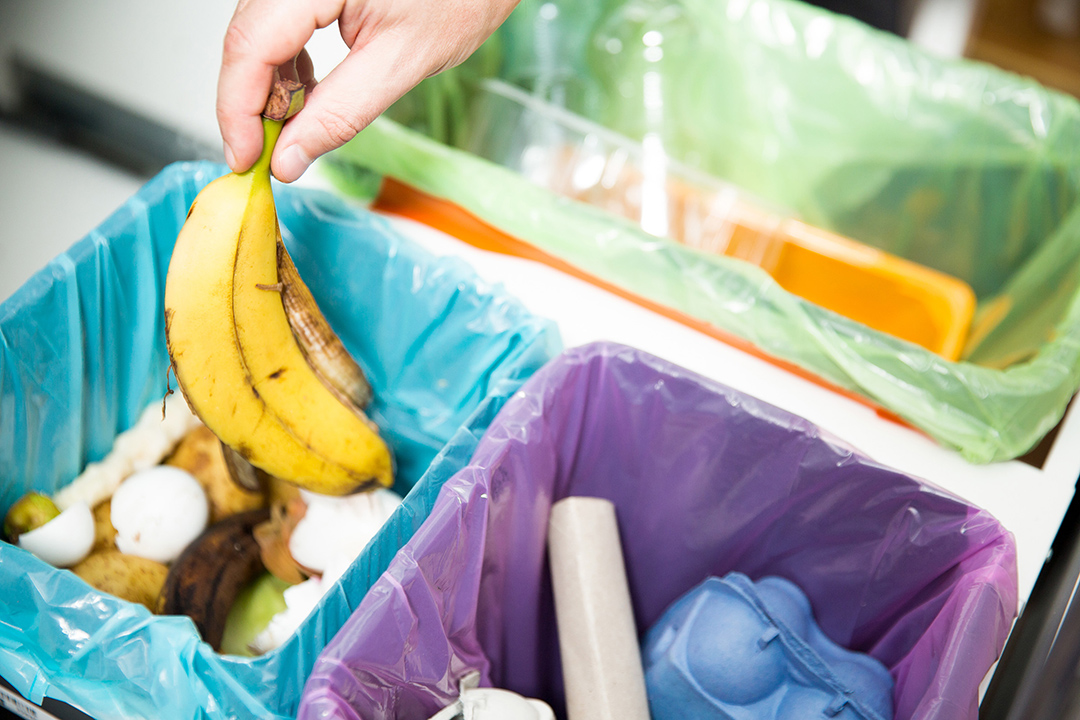NYS Pollution Prevention Institute collaborates with Syracuse University on USDA grant
Award to assist state communities with reducing amount of edible food that goes to waste
The New York State Pollution Prevention Institute is collaborating with Syracuse University’s Center for Sustainable Community Solutions on a grant award from the U.S. Department of Agriculture to assist communities and stakeholders in New York state with reducing the amount of edible food that goes to waste.
The New York State Pollution Prevention Institute (NYSP2I)—led by Rochester Institute of Technology’s Golisano Institute for Sustainability—is collaborating with Syracuse University’s Center for Sustainable Community Solutions (CSCS) on a grant award from the U.S. Department of Agriculture to assist communities and stakeholders in New York state with reducing the amount of edible food that goes to waste.
The USDA estimates that approximately 35 percent of food produced in the United States goes uneaten, which according to the nonprofit Rethink Food Waste through Economics and Date (ReFED), incurs a nationwide annual cost of more than $400 billion. Wasted food also is a large contributor to climate change globally and wastes significant amounts of freshwater, energy, and other agricultural inputs.
Together, NYSP2I and CSCS are developing a series of workshops, guidance materials, and technical assistance opportunities for New York state community leaders, with a focus on rural areas. Community leaders and other stakeholders will receive guidance, training, and support for the creation of local sustainable organics management plans that will identify opportunities for food loss reduction, establish networks for edible food rescue, and more.
“Creating a better, more sustainable future for our rural communities takes teamwork, and collaboration with all of the stakeholders,” said Charles Ruffing, NYSP2I’s director. “NYSP2I is excited to join forces with these communities and CSCS to help reduce edible food waste across the Empire State.”
“We are thrilled to team up with NYSP2I to complement each other’s experience and knowledge in reducing wasted food,” said Melissa Young, assistant director of CSCS. “Our teams will work with communities to develop solutions for getting more edible food to hungry people and diverting more organic materials to be recycled into valuable soil amendment.”
This effort will help expand the benefits of The NYS Food Donation and Food Scraps Recycling Law, which went into effect Jan. 1, 2022, by providing additional support to stakeholders who may or may not be affected by the law. The law, passed in 2019, requires businesses and institutions that generate an annual average of two tons of unused food per week to donate excess edible food and recycle all remaining food scraps if they are within 25 miles of an organics recycler, such as a composting facility or anaerobic digester.
It does not include New York City (which already has a local law in place requiring the diversion of food scraps from disposal); hospitals; nursing homes; adult care facilities; and K-12 schools.
USDA Non-discrimination Statement
In accordance with Federal civil rights law and U.S. Department of Agriculture (USDA) civil rights regulations and policies, USDA, its Mission Areas, agencies, staff offices, employees, and institutions participating in or administering USDA programs are prohibited from discriminating based on race, color, national origin, religion, sex, gender identity (including gender expression), sexual orientation, disability, age, marital status, family/parental status, income derived from a public assistance program, political beliefs, or reprisal or retaliation for prior civil rights activity, in any program or activity conducted or funded by USDA (not all bases apply to all programs). Remedies and complaint filing deadlines vary by program or incident. Program information may be made available in languages other than English. Persons with disabilities who require alternative means of communication to obtain program information (e.g., Braille, large print, audiotape, American Sign Language) should contact the responsible Mission Area, agency, or staff office; the USDA TARGET Center at (202) 720-2600 (voice and TTY); or the Federal Relay Service at (800) 877-8339.







